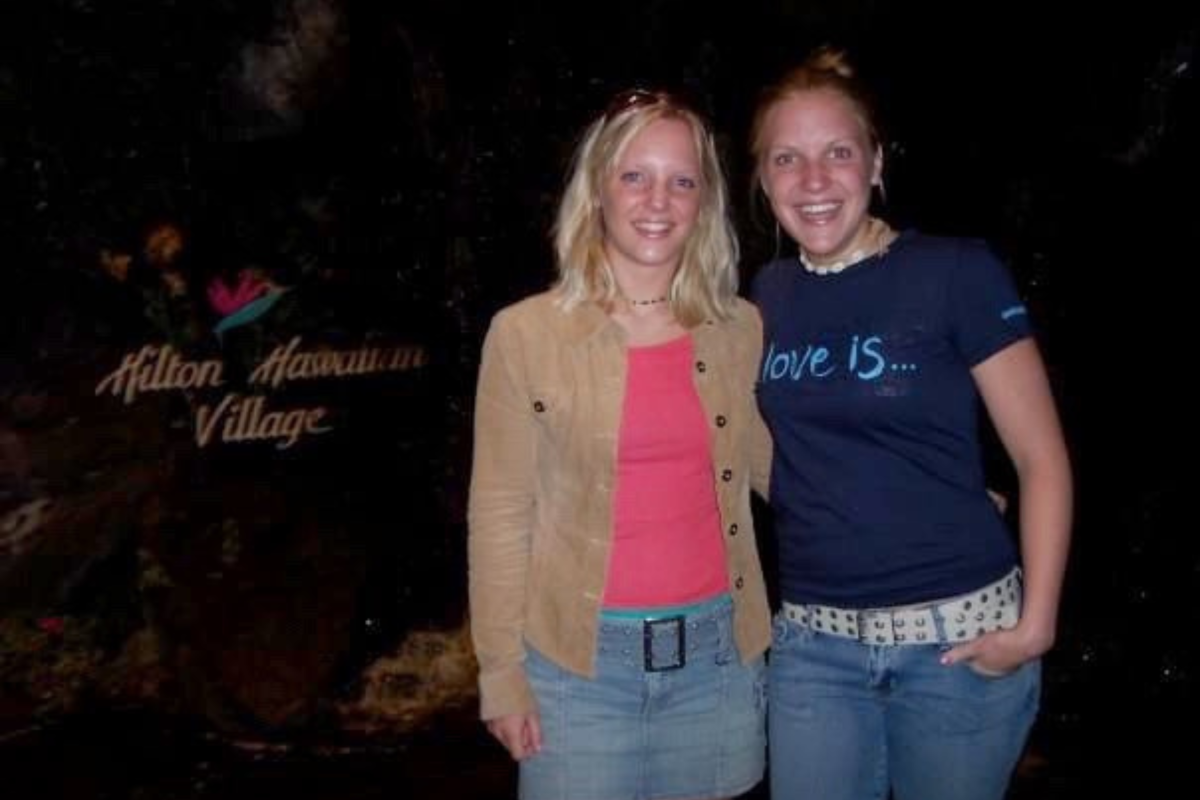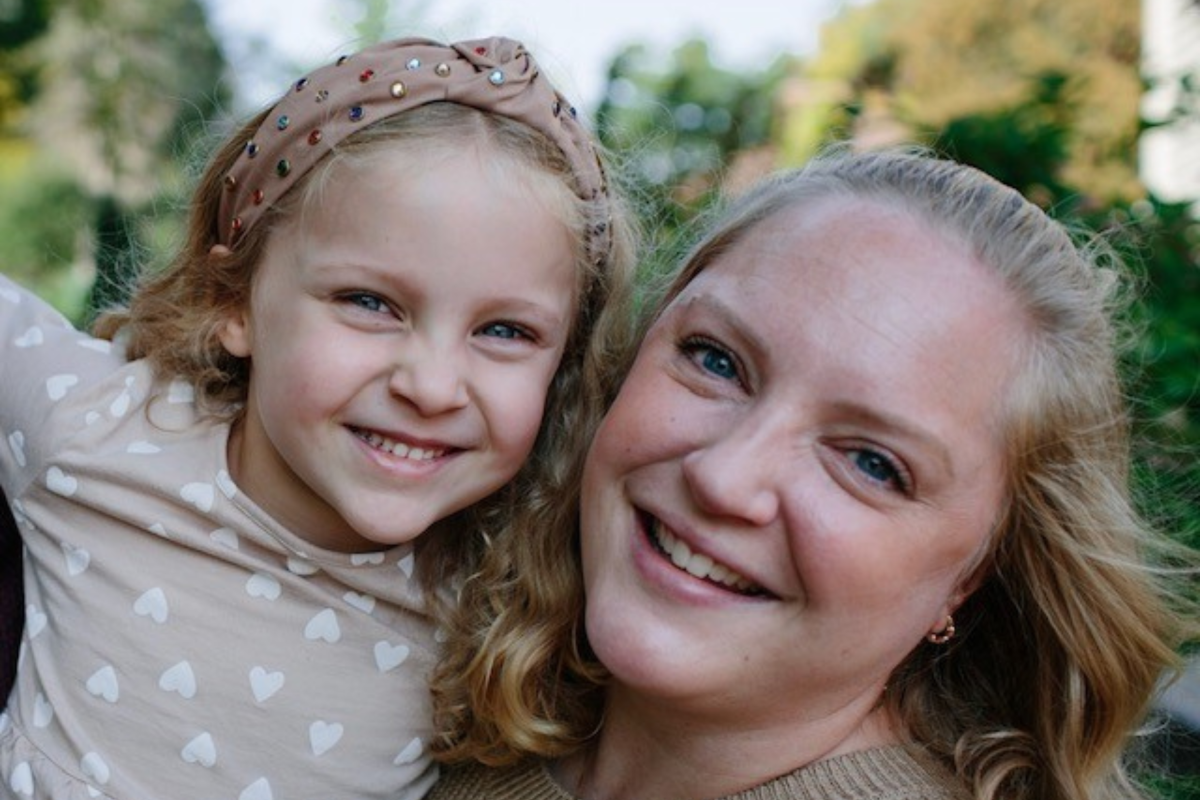Starting college should be an exciting time for a young student but Kezia Reeder didn’t have the experience many 18 year olds yearn for.
On paper, Reeder was set to thrive in the next chapter of her life. She was a double major and minor, achieving high grades and had an active social life, but behind closed doors, it was a different story.
“In my head it was it was miserable. I would wake up and have constant thoughts about what to eat, eating too much, [thinking] do I deserve to eat, have I worked out enough. It was a constant just chatter of those eating disorder thoughts,” the 38-year-old told Newsweek.

Kezia Reeder
Reeder attended Hamline University in Minnesota in 2004, four hours away from her home state in Michigan. Being in a new environment, the constant access to food and navigating her freshman year of college was a perfect storm for Reeder’s eating disorder to manifest itself, and she felt completely out of her depth.
“I ended up getting sick from a cold and I just realized, I’m able to eat less food and feel full, and for some reason, my brain just latched on to that and it was full steam ahead. My eating disorder started,” Reeder told Newsweek.
What started off as gradual weight loss prompted compliments from others, only adding flames to the fire. “That just led me deeper and deeper into it,” she added.
It wasn’t until Reeder went home to visit family that they noticed something had changed in the young woman they sent off to college, and insisted she got professional help. Although adamant that she didn’t have a problem, Reeder started receiving treatment at The Emily Program where she was diagnosed with an Eating Disorder Not Otherwise Specified (EDNOS).
She was on and off her treatment throughout college, still in a semi denial mindset that she had a problem with food.
“I would just fake it for a while and stop treatment when I thought I was OK, but it always came back. I ended up purging several times a day and [the cycle] would repeat itself until I got serious about asking for the help I needed,” she told Newsweek.

Kezia Reeder
During her senior year of college, Reeder’s treatment intensified, and she did in and outpatient treatment for months. Years later, lobbying at Washington, D.C. with the Eating Disorders Coalition (EDC), she would learn that a person dies every 52 minutes from an eating disorder in America.
“I was really tired of being that statistic. To think ahead of like, I want to be able to live a life. I want to be able to get pregnant,” she said.
Almost 10 years into her recovery, Reeder got pregnant. She was open with her nurses and other medical providers about her history of an eating disorder and asked them not to disclose her weight, unless it became a health concern.
A study published in the Journal of Women’s Health & Gender-Based Medicine found that eating disorders during pregnancy are often underreported and under-recognized, partly due to the stigma that still surrounds eating disorders and the fact that pregnancy can mask typical symptoms.
“I just knew that if I heard those numbers, there was a chance that little eating disorder thought would whisper in my head, and I just didn’t want to open the door for it,” she said.
While she was able to channel the mindful eating practices she had learned in treatment, the challenges came after she gave birth. Targeted advertising propelled the “bounce-back culture” and she faced body image struggles postpartum.
“There were thoughts that popped up in my head like maybe I should restrict, and so when those thoughts came up, I was honest about it, and I told people the thoughts I was having. I had to go against what the eating disorder thoughts said in my head,” she said.
This checks out too. A 2020 study published in the BMC Pregnancy and Childbirth looking into the risk of eating disorder (ED) relapse during pregnancy and after delivery revealed that recurrence of EDs and the occurrence of postpartum depression were higher in this population, indicating the need to closely monitor EDs both during pregnancy and after birth.

Kezia Reeder
Now as a mom to a six-year-old daughter, Reeder is determined to do everything she can to ensure she doesn’t hear her speaking negatively about her body. The mom of one is also making her voice heard as a volunteer lobbyist at the EDC, advocating for funding for eating disorder research.
“Since I was able to get the care and treatment I need, there are so many people that can’t, and I’m going to do everything I can to help advocate for that change. I love using my voice to advocate for people who can’t quite do it now because they might be in the thick of it,” she said.


